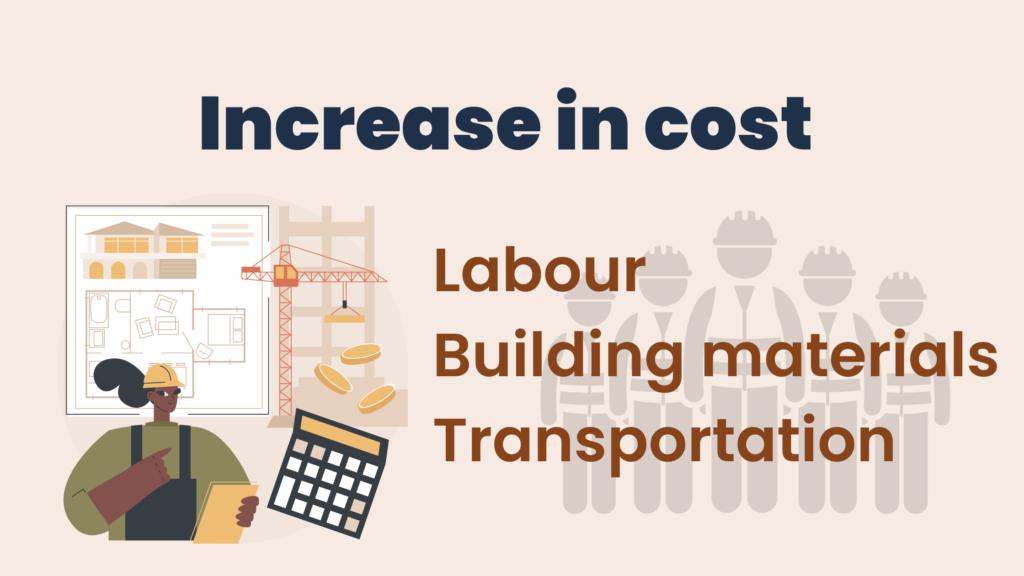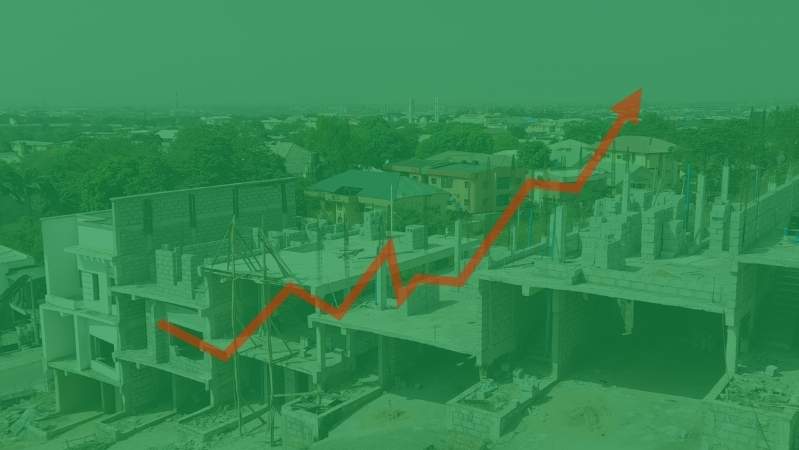The Nigerian government officially removed the subsidy on Premium Motor Spirit (PMS). It’s no surprise, this PMS subsidy removal will Impact construction costs.
This decision, aimed at reducing fiscal deficits and redirecting funds towards critical sectors, is expected to have far-reaching implications across various industries.
One sector that will likely experience significant reaction is the real estate construction industry, specifically in terms of building materials prices, construction costs and the subsequent surge in real estate property prices.
We will take a look at the potential impact of the removal of the PMS subsidy on the construction industry, particularly in cities like Abuja and Lagos, and its implications for home buyers and the overall real estate market.

Building Materials and Increase in Prices:
One immediate effect of the removal of the PMS subsidy is likely to be an increase in the prices of building materials.
As a result, suppliers and manufacturers will pass on these increased transportation costs to consumers, leading to a surge in building materials prices.
Home builders and contractors in Nigeria, will need to reassess their budgets and account for these price hikes to ensure the feasibility of their projects.
Government Policy and Home Buyers:
The removal of the PMS subsidy also has implications for home buyers in Nigeria.
As building materials prices increase, the overall cost of construction will rise, potentially making homes less affordable for prospective buyers.
Government policies and incentives will play a crucial role in mitigating this impact.
The government must consider measures such as providing tax breaks or subsidies for home buyers to offset the increased construction costs and ensure affordable housing remains within reach for the population.
Impact on the Real Estate Market:
The real estate market in Nigeria, particularly in Abuja and Lagos, is likely to experience a surge in property prices following the removal of the PMS subsidy.
With higher construction costs, developers and investors will aim to recoup their expenses by increasing property prices.
This could create a challenging environment for potential home buyers, as the cost of homeownership may become increasingly unaffordable.
Furthermore, existing homeowners may see an appreciation in the value of their properties, which could benefit them in the long term.
Cost of Labor and Construction Cost:
Alongside the increase in building materials prices, the cost of labor is another crucial factor that will impact construction costs.
As transportation costs rise, construction workers may demand higher wages to compensate for the increased cost of commuting or living expenses.
This will further escalate the overall construction cost and, subsequently, drive up property prices.
Developers and contractors will need to carefully manage labor costs and explore alternative strategies, such as optimizing construction processes or adopting cost-saving technologies, to mitigate the effects of the subsidy removal.
Increase in Transportation and Its Ripple Effects:
Beyond the construction industry, the removal of the PMS subsidy will lead to an increase in transportation costs across Nigeria.
Higher fuel prices will directly affect transportation companies, logistics providers, and other industries reliant on the movement of goods and people.
The ripple effects of these increased transportation costs will eventually permeate into the construction industry, amplifying the impact on building materials prices and construction costs.
Stakeholders in the real estate sector must be prepared to navigate these challenges and adapt their strategies accordingly.
Read Also: The Role of PropTech in Real Estate Construction Management




